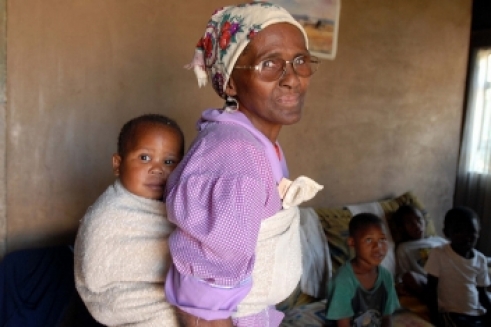In a major step forward in the protection of older women’s rights, the UN Convention on the Elimination of All Forms of Discrimination Against Women (CEDAW) Committee has adopted a new general recommendation on the rights of older women.

Age discrimination and ageism are rife and continue to be tolerated in all parts of the world. Women and men experience ageing differently. Though women live longer than men, they face discrimination and violation of their rights because they are women and because they are old.
NGOs played important role
This general recommendation outlines how the articles in CEDAW apply to older women, what obligations governments have to protect, respect and fulfil those rights and how they might do this.
NGOs have played an important role in getting this general recommendation. The NGO Sub-Committee on Older Women in New York, of which HelpAge is a member, has been calling for the CEDAW Committee to better address older women and ageing for the past 10 years.
NGOs, including HelpAge and its partners, were encouraged by the CEDAW Committee to submit information and evidence on older women’s rights and the Committee held meetings to listen to what they had to say in both New York and Geneva.
Support from ageing and women’s organisations grew, culminating in over 100 NGOs calling for the general recommendation’s adoption this month.
Ageing and gender must be addressed from the outset
Bridget Sleap, rights policy adviser at HelpAge International says
“If implemented, the General Recommendation will improve the protection of older women’s rights in the 186 countries that have ratified CEDAW. Governments who have ratified the convention will be asked to provide more information on older women in their reports on how they are implementing the Convention.
“But it will also have an impact beyond CEDAW itself.
“2010 saw the creation of UN Women, the new UN body that brings together the different parts of the UN system working on women. UN Women is due to become operational from 1 January 2011.
“Increased attention by CEDAW to older women’s rights will, we hope, help to convince UN Women to address ageing and gender from the very outset, taking a lifecourse approach to all its work and having dedicated staff working on ageing and older women.”
Debate around older people’s rights is increasing
The General Recommendation comes at a time of increased debate around the need for better protection of older people’s rights under international law.
It is a important tool for highlighting to governments and to the human rights community more broadly the need to take older people’s rights seriously.
Download the general recommendation No. 27 on older women and protection of their human rights.
